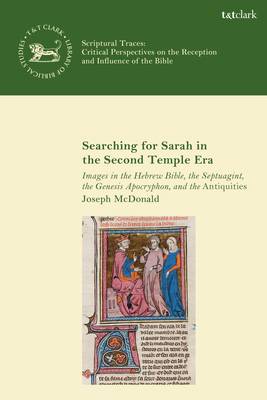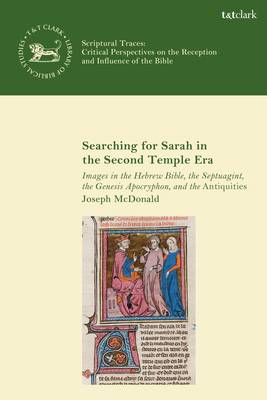
- Afhalen na 1 uur in een winkel met voorraad
- Gratis thuislevering in België vanaf € 30
- Ruim aanbod met 7 miljoen producten
- Afhalen na 1 uur in een winkel met voorraad
- Gratis thuislevering in België vanaf € 30
- Ruim aanbod met 7 miljoen producten
Zoeken
Searching for Sarah in the Second Temple Era
Images in the Hebrew Bible, the Septuagint, the Genesis Apocryphon, and the Antiquities
Joseph McDonald
€ 228,95
+ 457 punten
Omschrijving
Seeking to build upon recent scholarship based on Biblical women, Joseph McDonald uses a character-centered literary approach to read the story of Sarah as it was told and retold in the Second Temple period. McDonald offers an alternative to the usual approaches to "rewritten Bible" narratives, which often emphasize near-context, synoptic comparison of retold stories and their scriptural precursors, arguing that examination of retold narratives as narratives reveals important aspects of their internal literary effects, that may otherwise go unnoticed.
Taken together, McDonald suggests that such readings reveal one of Sarah's trans-narrative or "deep traits," as a curious, multi-faceted resemblance to the character of Abraham. The richness of her images, however, shows that this resemblance is not the ultimate distillation of Sarah, but a symptom of the kind of restriction that she consistently faces in this literature. McDonald concludes that creative readings of the narratives featuring Sarah in the Hebrew Bible, the Septuagint, the Genesis Apocryphon, and the Jewish Antiquities of Josephus illuminate Sarah as a complex and sometimes contradictory figure, whose individuality and agency often struggle to escape limitations placed upon her - both by other characters, such as Abraham and God, and by the narrators of her tales.Specificaties
Betrokkenen
- Auteur(s):
- Uitgeverij:
Inhoud
- Aantal bladzijden:
- 288
- Taal:
- Engels
- Reeks:
Eigenschappen
- Productcode (EAN):
- 9780567689122
- Verschijningsdatum:
- 20/02/2020
- Uitvoering:
- Hardcover
- Formaat:
- Genaaid
- Afmetingen:
- 163 mm x 236 mm
- Gewicht:
- 566 g

Alleen bij Standaard Boekhandel
+ 457 punten op je klantenkaart van Standaard Boekhandel
Beoordelingen
We publiceren alleen reviews die voldoen aan de voorwaarden voor reviews. Bekijk onze voorwaarden voor reviews.











